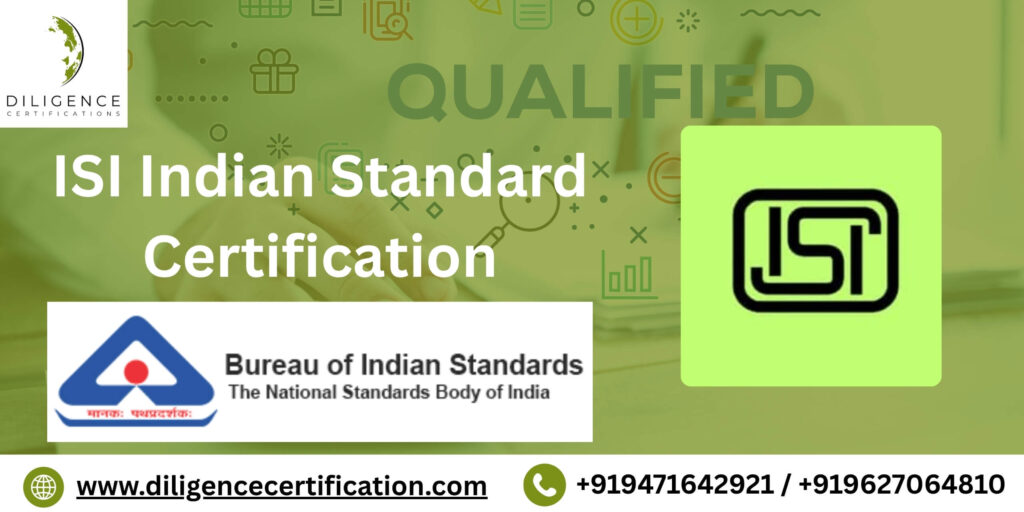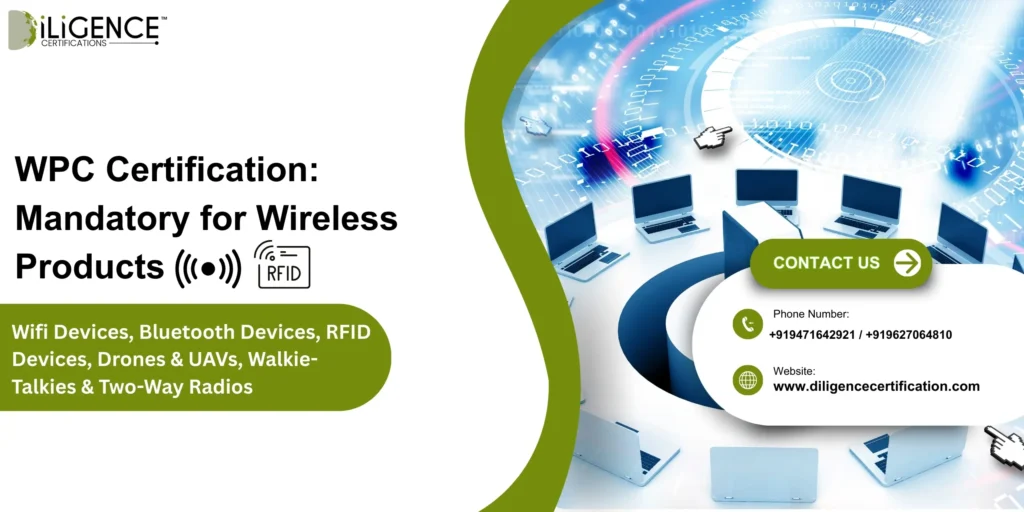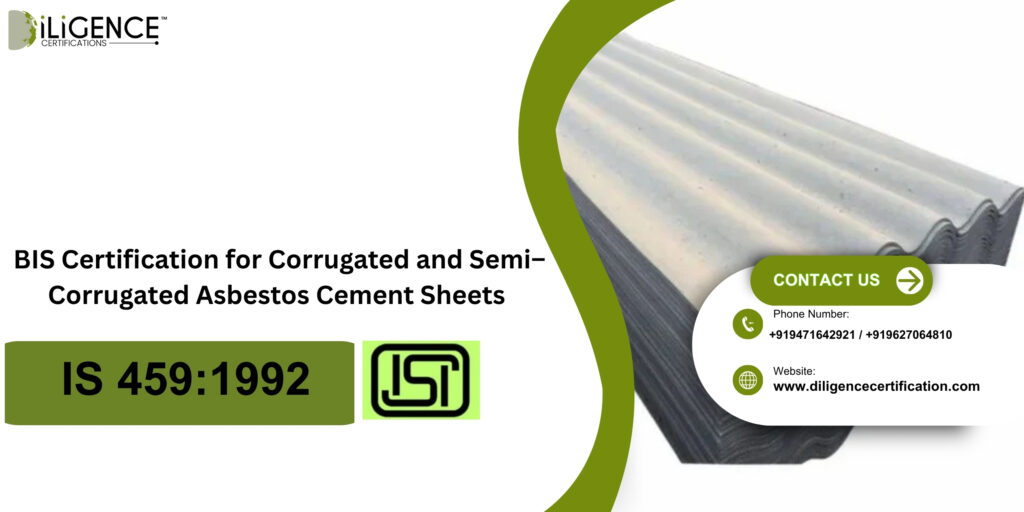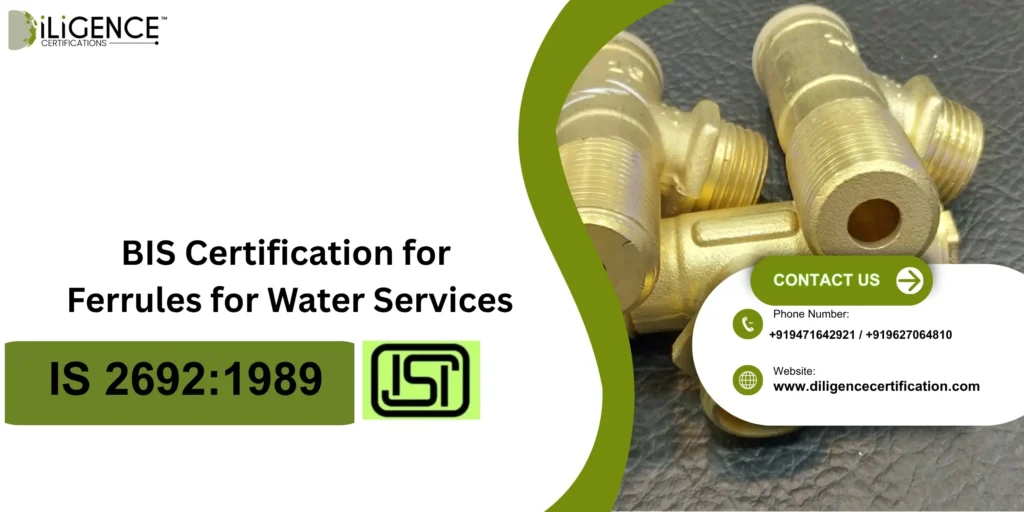- ISI Indian Standard is the official technical specification set by the Bureau of Indian Standards (BIS) for regulating product quality and safety in India.
- The ISI Mark is a mandatory conformity mark for 450+ products, including electrical appliances, steel, cement, helmets, tyres, and kitchen equipment.
- All products under a Quality Control Order (QCO) must be BIS certified and bear the ISI Mark before being sold in the Indian market.
- A BIS Certificate is issued after factory inspection, lab testing, and successful conformity with the applicable IS Code.
- Certification is crucial for both Indian manufacturers and global exporters to ensure customs clearance and legal sale of regulated goods.
- Products are tested in BIS-recognized labs only—foreign or private labs not recognized by BIS are not accepted.
- Certification schemes include Simplified Domestic, Normal, and FMCS (Foreign Manufacturers Certification Scheme).
- ISI licenses are valid for 1 year and renewable annually through continued compliance and surveillance audits.
- Non-compliance with ISI standards can result in product seizure, penalties, and criminal action under the BIS Act.
- Global brands like Bosch, Philips, and Haier comply with ISI standards to distribute across India’s growing market.
Introduction
In early 2024, a German kitchen appliance company attempted to export 15,000 pressure cookers to India. Despite CE certification, the entire shipment was held at customs for not having the ISI Mark under Indian BIS standards. Within 30 days, the importer switched to a certified vendor.
India’s quality enforcement is intensifying—especially under the Compulsory Certification Scheme by the Bureau of Indian Standards. Whether you are a domestic brand or an international supplier, having a valid BIS Certificate for your product’s corresponding ISI Indian Standard is no longer optional.
What is ISI Indian Standard?

The ISI Indian Standard is the quality and safety standard set by the Bureau of Indian Standards (BIS) for products made, imported, or sold in India. The acronym “ISI” stands for Indian Standards Institute, which was the original name of what is now known as BIS.
Every product covered under ISI Indian Standards must conform to a specific IS code, such as:
- IS 302 (Electric Irons)
- IS 1476 (Refrigerators)
- IS 2347 (Pressure Cookers)
Products adhering to the ISI Indian Standard are marked with the ISI Mark, ensuring regulatory compliance and public trust.
In 2023, a Chinese manufacturer shipping ceiling fans under a private label to an Indian e-commerce platform had their consignment held by Mumbai Customs. The reason? No ISI Mark under IS 374:2019. They had to airfreight samples back, redo testing, and apply for BIS—losing ₹18 lakh in warehousing charges.
What is the ISI Mark?
The ISI Mark is a conformity mark that confirms a product complies with its applicable Indian Standard (IS Code). It includes:
- The standard number (e.g., IS 4151 for helmets)
- The BIS license number
- The BIS logo
Without this mark, selling regulated products in India is illegal.
A German power tool company missed out on a ₹12 crore government supply contract for drill machines because their product lacked ISI certification under IS 7558. Despite global ISO certifications, the tender mandated ISI, illustrating that India-specific compliance can override international standards.
Why ISI Indian Standard is Mandatory in India?

The Bureau of Indian Standards (BIS) is the agency within the Ministry of Consumer Affairs in India that certifies product safety, performance and reliability to national requirements. The ISI Indian Standard is the technical specification, and the BIS Certificate is the confirmation of conformity.
Key Objectives:
- Protect Indian consumers from substandard imports
- Prevent counterfeits and untested products
- Encourage quality Indian manufacturing
- Strengthen trade regulations under Make in India & QCOs
Which Products Require ISI Indian Certification?
The ISI certification is mandatory for over 450 products, including:
| Product Category | Sample IS Code |
| Electrical Appliances | IS 302 |
| Helmets | IS 4151 |
| Cement | IS 1489 |
| LPG Cylinders | IS 3196 |
| Automotive Tyres | IS 15636 |
| Steel Bars | IS 1786 |
| Pressure Cookers | IS 2347 |
Indian Pressure Cooker Brand Recalled by Retail Chain
An Ahmedabad-based cookware manufacturer was asked to withdraw products by a major retail chain after random market testing revealed non-compliance with IS 2347. Despite product quality being acceptable, the lack of updated ISI Certification license on the packaging triggered a nationwide recall from stores.
ISI Indian Standard vs BIS Certification
| Criteria | ISI Indian Standard | BIS Certificate |
| Definition | The technical standard/code | Official approval of standard compliance |
| Issuing Authority | Bureau of Indian Standards | Bureau of Indian Standards |
| Output | ISI Mark on product | License document from BIS |
| Mandatory? | For regulated products | Yes, if ISI applies |
How to Get ISI Indian Standard Certification – Step-by-Step
1. Identify the Relevant IS Certification Code
Match your product to the correct Indian Standard.
2. Choose BIS Certification Scheme
Based on product type: Simplified Procedure, Normal Procedure, or Foreign Manufacturer Scheme.
3. Prepare Documentation
Get your company, lab, and technical documents in order.
4. Factory Inspection
BIS officials conduct a thorough audit (for most categories).
5. Product Testing
Conduct sample testing in a BIS-recognized lab.
6. License Approval
Upon successful review, BIS grants the ISI certification and license number.
7. Use of ISI Mark
You’re now allowed to legally affix the ISI on your product and packaging.

Key ISI Standards Across Sectors
Cement:
- UltraTech Cement conforms to IS 1489 (for Portland Pozzolana Cement), enabling it to bid on government infrastructure projects.
Helmets:
- Brands like Studds and Vega use ISI Certification under IS 4151, making them legally eligible for road use across India.
Helmet Importer Sued for Road Safety Violation
- A Delhi-based helmet importer was legally sued after a road accident investigation revealed that the helmets bore no ISI Mark under IS 4151:2015. The firm faced not only product seizure but also FIRs under consumer safety laws.
Pressure Cookers:
- A major importer of Chinese cookers failed to secure IS 2347 certification, resulting in product seizures at the Mumbai Port.
Documents Required for ISI Indian Standard Certification
- Business Registration (GST/Udyam/MSME)
- Manufacturing Process Flowchart
- Quality Manual
- Factory Layout & Utility Details
- Test Report (BIS approved lab)
- Factory Equipment Details
- Trademark Certificate (if applicable)
- Authorized Representative Letter (for foreign brands)
Timeline, Validity & Cost
| Element | Approximate Value |
| Timeline | 4–6 weeks (India); 8–12 weeks (Foreign) |
| Validity | 1 year (renewable annually) |
| Cost Range | ₹1.5 to ₹2.5 lakhs per model |
Benefits of ISI Indian Standard
- Market access to India’s 1.4B+ consumers
- Eligibility for government tender
- Compliance with QCOs (Quality Control Orders)
- Avoids legal penalties and product bans
- Competitive advantage & consumer trust
- Boosts exports for Indian manufacturers
Requirements for ISI Indian Standard Certification
To apply for an ISI certification under the Bureau of Indian Standards, applicants must prepare the following:
General Business Requirements:
- Company Registration (Udyam/MSME/IEC/GST)
- Factory address proof
- Factory layout plan and utility list
Manufacturing & Quality Documents:
- Detailed manufacturing process flowchart
- Quality Control Manual
- List of manufacturing & testing equipment
- Calibration certificates of testing instruments
- Raw material and component specifications
Testing & Technical:
- Product test report from BIS-recognized lab
- Product specifications and datasheet
- Bill of materials and finished product photos
- IS code compliance matrix
For Foreign Brands:
- Nomination of an Authorized Indian Representative (AIR)
- Signed agreement between AIR and foreign manufacturer
- Undertaking of responsibility
- Compliance to FMCS guidelines
A seller listing surge protectors on Amazon got permanently delisted for not uploading a valid ISI certification under IS 1293. Amazon’s compliance checks now require certificate numbers and BIS registration details for regulated electrical goods.
Global Relevance of ISI Mark
Many international clients often ask:
“Is the ISI Certification recognized outside India?”
Although global necessity is not required, for manufacturers and exporters to South Asia, GCC countries, and Africa, the ISI Certification serves as an important form of compliance symbol. It indicates that the product is compatible with India’s national quality framework which adds credibility for use in B2B markets and for further retail chains.
Compliance Mistakes to Avoid
- Assuming CE/FCC marks are enough
A UK-based air purifier company had their units rejected in Delhi customs because they didn’t obtain ISI under IS 302-1. - Improper lab selection
A large Mumbai-based steel company used a private lab not recognized by BIS—causing their entire ISI license application to be rejected. - Delaying annual renewal
A Bengaluru electronics brand lost their BIS license due to delayed renewal submission—costing them 3 months of e-commerce sales.
Why Choose Diligence Certifications?
At Diligence Certifications, we specialize in helping brands secure their ISI Mark Certification with zero compliance risk.
Our USPs:
- 100% end-to-end service
- Fast-track testing coordination
- Error-free documentation
- Support for foreign applicants
- Dedicated certification experts
Clients trust us across sectors—FMCG, automotive, electronics, and construction. From startups to Fortune 500s, we simplify India’s regulatory process.
Why Choose Diligence Certifications for ISI Indian Standard?
Getting ISI Indian Standards Certification can be a complicated process, however, with the right consultant, the process can be effortless. Diligence Certifications is known for helping businesses around the globe obtain their ISI licenses,
- Expertise in ISI Certification – Our team understands the regulations from the Bureau of Indian Standards (BIS) so we can ensure your products achieve total conformity.
- Managed Process from End-to End – Our process for certification takes you through the application preparation, product testing, and final approval processes. We manage it all.
- Faster Approvals – We have developed a process to mitigate the angst that comes with long delays, and we are highly connected within the industry to help you find your way to approvals sooner.
- Tailored Guidance – We provide guidance that is guided to your products category and the Indian market context.
- Trusted Partner of Global Brands – If you are an Indian manufacturer or you live abroad, we will help you straight into the Indian market with ISI certifications.
- Transparent & Cost-Effective – There are NO hidden fees, there are only transparent processes and cost-effective solutions
- Proven Track Record – We continue to service top manufacturers who rely on our audit services for their BIS and ISI.
- Partnering with Diligence Certifications – Diligence Certifications is more than certification, we are your partner for credibility, quality, and market trust for your product.
Conclusion
In 2025 and beyond, obtaining Certification for the ISI Indian Standard will not only satisfy the regulatory requirements, but it will also create a trust component for your brand. Regardless of whether your company is a local manufacturer growing nationally, or a foreign exporter exporting to India, a BIS and ISI mark will allow you to legally sell your product in the marketplace, instill consumer confidence, and create opportunity for growth in your business.
Ready to certify your product? Let Diligence Certifications guide you through the ISI mark journey—accurately, affordably, and quickly.
Frequently Asked Questions
Is the ISI Indian Standard mandatory in India?
Yes, for over 450+ regulated products, having the ISI Mark is mandatory under the BIS Act.
Can foreign brands apply for ISI Indian certification?
Absolutely. They must register under the Foreign Manufacturers Certification Scheme (FMCS) and appoint an Indian representative.
How long does it take to get ISI certification?
Typically, 4–6 weeks for Indian brands, and 8–12 weeks for overseas applicants depending on factory readiness.
What's the difference between ISI and ISO?
ISI is a product certification by BIS, while ISO is a global quality system standard. They serve different purposes.
Is product testing compulsory for ISI mark?
Yes, testing must be done in BIS-approved labs as per the relevant Indian Standard.
What happens if I sell non-ISI certified products?
You can face penalties, product seizures, blacklisting, and legal action under the BIS Act.
Can one ISI license cover multiple products?
Only if the products fall under the same IS code family. Otherwise, separate licenses are required.
Is ISI certification valid outside India?
Not mandatory globally, but it adds credibility in regional markets like SAARC, GCC, and Africa.
What is a CM/L number?
It is the Certification Mark License Number issued by BIS, which must be printed below the ISI Mark.
Is BIS certification lifetime valid?
No, BIS licenses are valid for one year, subject to renewal upon audit and review.








 BIS Certification
BIS Certification
 CDSCO
CDSCO
 CPCB
CPCB
 LMPC
LMPC
 WPC Approval
WPC Approval
 Global Approvals
Global Approvals
 TEC
TEC
 ARAI
ARAI
 BEE
BEE
 ISO Certification
ISO Certification
 Drone Registration
Drone Registration
 NOC For Steel
NOC For Steel



















 Business Registration
Business Registration















 Legal Services
Legal Services

















































